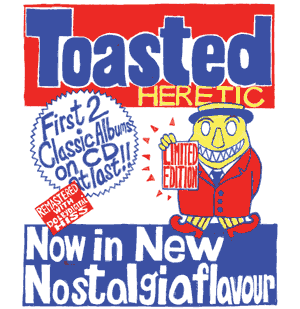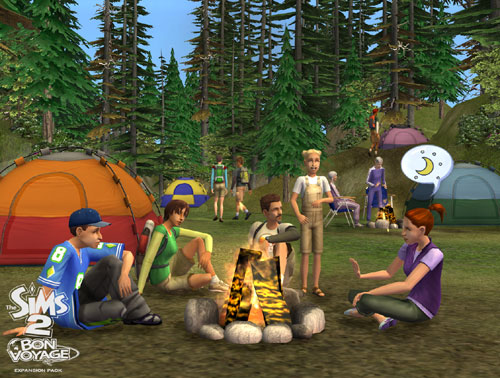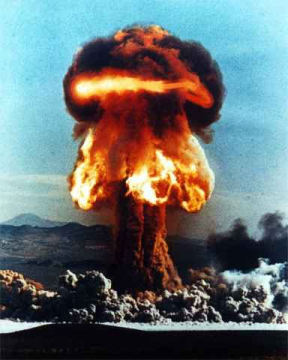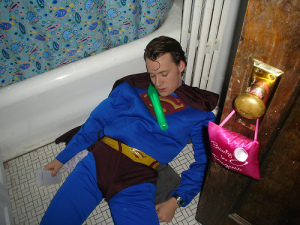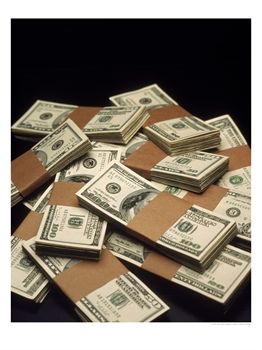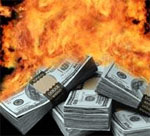That quote is from (as many of you will know, and many more won't) the 1984 hit single "Are You Ready To Be Heartbroken", by Lloyd Cole and the Commotions. (Lloyd Cole, back when he found it impossibly easy, before he realised it's impossibly hard.) It was good advice. As a very young man, I read Norman Mailer. I even, years later, got a new tailor. (Chris, of Favourbrook, Jermyn Street.)
Well, Norman Mailer, Great American Novelist, died last week, and a generation of pop lyricists who were as influenced by novels as songs are looking even more thoughtful than usual. There's a lot to think about. Norman Mailer cannot be solved. Norman Mailer cannot be neatly summed up. His vices were his virtues and his virtues were his vices and his bark was worse than his bite but his bite was worse than his bark and his love was hateful and his hate was lovely, and oh didn't you just want to punch him and kiss him, Lloyd?
He was incredibly famous for a very long time, but he isn't really, now. (He will be again, after the traditional post-death, decade-long dip. And when he is famous again, it will be for radically different things, dug out of his most forgotten books.)
I saw him read in Amsterdam a few years ago, at the Crossing Border Festival, where I was also reading. He was great. Frail, slightly deaf, tiny, walking slowly with two sticks, white hair standing up all over his electric head. He read a self-deprecating piece from Advertisements For Myself, and answered questions with wit and charm.
When goaded to (verbally) attack Tom Wolfe (who'd recently (verbally) savaged him), Mailer refused. "I think I'm the greatest writer in America. And there's maybe twenty more think the same. Novelists are an endangered species now, and when there's only twenty elk left in the world, they mustn't start trying to knock off each other's horns." (That quote is half from memory, and half from a Guardian interview of around the same time where he said almost the same thing in almost the same words... you can't do as much promotional work as Mailer did and not recycle some of the best lines.)
I wanted to go up to him onstage afterwards, and tell him something. But he was immediately surrounded by dozens of admirers from the audience, his tiny figure vanishing behind the seven-foot tall Dutch, and the seven-foot wide Americans. And I thought, he's got enough to deal with. And I'd be doing it mainly for me, not for him. Doing it to have my Mailer story. And he must have heard all this stuff so often... No, just because it's important to me doesn't mean I've the right to inflict it on him. So I didn't go up.
But if I had gone up I would have said something like...
When I was fourteen, maybe fifteen, I was reading The Naked and the Dead, in Tipperary. And I got to a scene where one of the American soldiers on patrol finds the corpse of a Japanese soldier lying in the sun, and stares at the body. And as I read the scene, and reread it, I realised that I was going to die. That my death was inevitable, and unavoidable. The knowledge was immense, direct, entirely untheoretical. It wasn't intellectual knowledge, it was physical. (I'd known before, obviously, that I would one day die, but I hadn't felt it, it wasn't real knowledge.)
And I put the book down. And for the next couple of weeks I thought about nothing else, I hardly spoke. I examined this new knowledge from every angle, I thought about the implications, I tried to work out how I should live, now that I knew that I was going to die. I was very depressed for most of that couple of weeks. And then I came to terms with it, and worked my way past it, and incorporated the knowledge into my life, and decided how I would try to live. And how I lived was better than how I'd lived before. More satisfying. More my own. And I was pretty happy, pretty much permanently, ever after.
Something like that.
So, Norman Mailer gave me death. And I will always be grateful.
Well, this time, although I'm still saying it mainly for me, at least I'm not bothering him...
Thanks, Norman. And goodbye.
